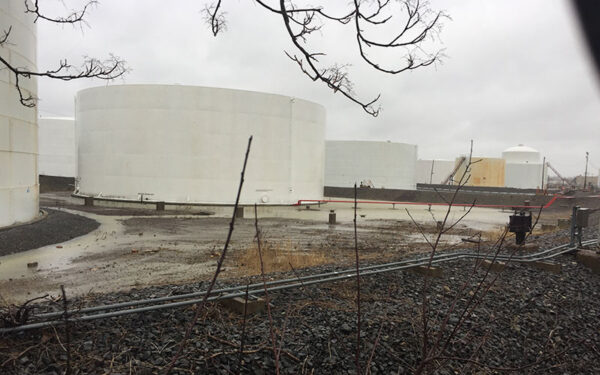
Strong solar policy can make rooftop solar panels more economical for everyone. Photo Credit: Shutterstock.
On a sunny day in Augusta earlier this spring, Governor Janet Mills signed into law a bill that will move Maine forward on solar energy – LD 91. The new law does away with a regressive rule put into place under the LePage administration that CLF challenged in court, and resurrects net metering policy, which promotes solar energy and helps Mainers invest in this valuable resource.
But restoring net metering is only the beginning. Maine still lacks policies that encourage and support the development of renewable resources like solar and wind, which are abundant in the state. The failure of Maine to invest in harnessing our own natural resources means that we are losing out on good jobs and clean air, all while continuing to spend our money on imported and price-volatile fossil fuels.
Two critical bills before the legislature will fill that void and advance the development of renewable energy in Maine: LD 1711, An Act to Promote Solar Energy Projects and Distributed Generation Resources in Maine, and LD 1494, An Act to Reform Maine’s Renewable Portfolio Standard. Legislators need to hear from you that Mainers want these bills passed and we want clean energy – now.
It’s Past Time to Support Solar Policy in Maine
Under the LePage administration, Maine fell behind the region and the nation on solar development. The first step to getting Maine back on track was to reinstitute net metering. This solar policy compensates homeowners and businesses for their extra electricity, making it more economic for them to install solar panels and ultimately benefiting all Mainers by adding low-cost, local energy to the electricity grid.
But to truly benefit from the burgeoning solar revolution – and the good jobs and clean air that come with it – Maine needs to make solar more accessible to everyone and adopt policies that encourage larger scale installations. Solar should be available to communities, low- and moderate-income households, cities and towns, and businesses.
Maine’s Legislature Can Make Solar More Accessible
After many years of foiled attempts, Maine’s legislature is voting imminently on An Act to Promote Solar Energy Projects and Distributed Generation Resources in Maine. This bill would attract investment and create jobs by expanding opportunities for Mainers who might not otherwise be able to invest in their own project – including renters – to get a share of clean power by joining a community solar project. The bill would also help cities and towns more easily invest in solar projects, while also establishing competitive processes to encourage more solar installations of different types and sizes to ensure cost-effective investment.
Altogether, these strategies and policies are projected to add more than 400 megawatts of solar energy to our electricity grid (almost eight times the current amount of solar power currently generated in Maine). And more solar electricity on the grid will lower energy costs and save families and businesses money, all while cutting harmful emissions.
Maine Needs to Grow its Renewable Energy Sector
Maine lawmakers are also considering another important bill: An Act to Reform Maine’s Renewable Portfolio Standard. This bill would require the state’s electricity supply be made up of 80% renewable energy by 2030, a major accomplishment and huge step toward combatting our climate crisis.
Investing in renewables creates jobs, reduces climate-damaging emissions, and decreases our reliance on unpredictable fossil fuels. Growing new, clean energy also benefits the health of Mainers by cutting air pollution, savings in avoided medical costs.
We Need Your Help to Pass This Solar Legislation
Home-grown, clean, renewable energy benefits all of us here in Maine but there remains formidable opposition from the fossil fuel industry and climate deniers. And that’s where you come in.
Contact your legislators and let them know that Mainers demand renewable energy. Tell them to support these two bills: LD 1711, An Act to Promote Solar Energy Projects and Distributed Generation Resources in Maine, and LD 1494, An Act to Reform Maine’s Renewable Portfolio Standard.



